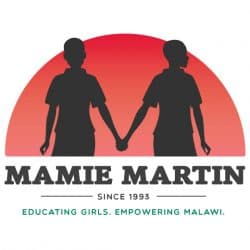Unesco provide a useful summary up-to-date figures for secondary education in Malawi,
http://uis.unesco.org/en/country/mw
While it will always be challenging to measure the impact of work such as supporting girls at school, we have been able to conduct some evaluative studies and they are available on this page.
Outcomes Report for 2018 -2021
[pdf download here] or click on image below

Between 2018 and 2022 the Mamie Martin Fund (MMF) supported 301 girls in eight schools in Northern Malawi
Money is sent directly to Education provider partners in Malawi to cover the fees of those girls selected to receive a MMF scholarship. The selection of girls is made at school level on the basis of need only
- Mercy Sibande, the Malawi Manager, holds a Ready to Learn Fund (R2L) from which girls are given small grants for items such as soap, transport cost, writing materials, calculators, etc.
- MMF is primarily financed by individual donations
- MMF-supported girls perform much better than average in their school exams
- The education dropout rate of the girls whom MMF supported during this period was 5.3%. The national average was 9.58%
- The many stories of ex-pupils demonstrate how great the impact of funding secondary school education can be.
The full report on our outcomes 2018-2022 can be requested by emailing us.
Girls’ Education research for MMF (2020)

In the summer of 2020 the Mamie Martin Fund hosted a research student. Anna Freidenfeld conducted a literature review on girls’ education in Malawi. She also analysed the data collected by MMF since 2014. She wrote her MSc (International Development) dissertation on these areas. We have created a report and appendix based on Anna’s work and these are presented below.
The main report is called ‘Why Girls’ Education Matters and how MMF helps‘ and the appendix report (‘MMF Data Analysis 2020‘) contains some detail from the quantitative data analysis.
Anna’s analysis of MMF’s records between 2014 and 2019 indicated that 81% of supported girls successfully completed secondary school. This figure compares very favourably with Malawi-wide data about lower secondary school completion which stood at just 21% in 2016 but for rural girls that figure was 14%. For upper secondary the national average for girls’ completion for 2016 is only 13%. For rural girls, it is only 8%. (UNESCO Institute for Statistics, 2020). These figures suggest that MMF’s support significantly increases completion rates for the selected girls, who were selected on the basis of need, not academic ability.
The appendix to the report presents some of the data analysed by Anna Freidenfeld as part of her placement. This appendix shares information about practical needs of the girls and family sizes.
Impact Report (2015)

We published an Impact Report in 2015. The research for this work was undertaken by Martha Chirwa in Malawi and we are grateful to her for making this report possible. You can download the report via the link below.

